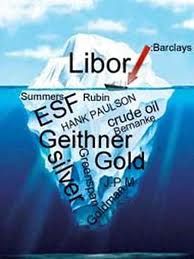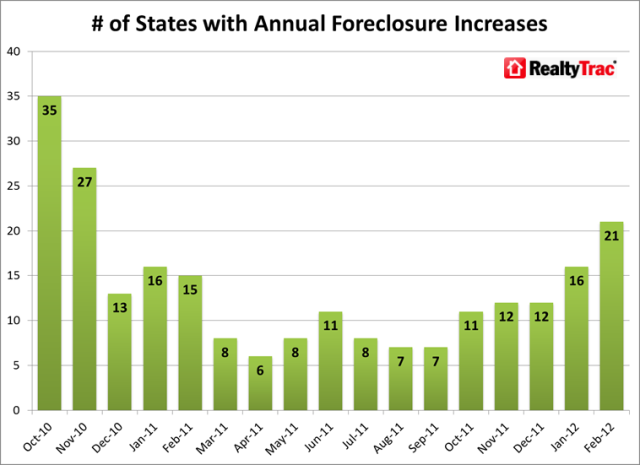Cross posted from The Stars Hollow Gazette
As we have documented here at Stars Hollow, the task force that was created to pursue mortgage fraud and hold the banks accountable was, and is, a sham game to protect the banks from real relief for defrauded homeowners.
Your mortgage documents are fake!
by David Dayen, Salon
Prepare to be outraged. Newly obtained filings from this Florida woman’s lawsuit uncover a horrifying scheme
A newly unsealed lawsuit, which banks settled in 2012 for $1 billion, actually offers a different reason, providing a key answer to one of the persistent riddles of the financial crisis and its aftermath. The lawsuit states that banks resorted to fake documents because they could not legally establish true ownership of the loans when trying to foreclose.
This reality, which banks did not contest but instead settled out of court, means that tens of millions of mortgages in America still lack a legitimate chain of ownership, with implications far into the future. And if Congress, supported by the Obama Administration, goes back to the same housing finance system, with the same corrupt private entities who broke the nation’s private property system back in business packaging mortgages, then shame on all of us. [..]
Most of official Washington, including President Obama, wants to wind down mortgage giants Fannie Mae and Freddie Mac, and return to a system where private lenders create securitization trusts, packaging pools of loans and selling them to investors. Government would provide a limited guarantee to investors against catastrophic losses, but the private banks would make the securities, to generate more capital for home loans and expand homeownership.
That’s despite the evidence we now have that, the last time banks tried this, they ignored the law, failed to convey the mortgages and notes to the trusts, and ripped off investors trying to cover their tracks, to say nothing of how they violated the due process rights of homeowners and stole their homes with fake documents.
The very same banks that created this criminal enterprise and legal quagmire would be in control again. Why should we view this in any way as a sound public policy, instead of a ticking time bomb that could once again throw the private property system, a bulwark of capitalism and indeed civilization itself, into utter disarray? As Lynn Szymoniak puts it, “The President’s calling for private equity to return. Why would we return to this?”
White-collar fraud expert proves ‘mortgage-backed securities’ neither mortgage-backed nor secure
by Scott Kaufmann, The Raw Story
The forged documents were endorsed by employees of companies long bankrupt, executives who signed their name eight different ways, or “people” named “Bogus Assignee for Intervening Assignments” so that the banks could establish standing to foreclose in courts. The end result, according to white-collar fraud expert Lynn Szymoniak, is that over $1.4 trillion in mortgage-backed securities are still, to this day, based on fraudulent mortgage assignments.
The lawsuit against Wells Fargo, Bank of America, JPMorgan Chase, Citi and GMAC/Ally Bank was settled in early 2012 for $1 billion, but now that the evidence is unsealed, Szymoniak and her legal team are free to pursue the other named defendants, including HSBC, the Bank of New York Mellon, and US Bank. “I’m really glad I was part of collecting this money for the government, and I’m looking forward to going through discovery and collecting the rest of it,” Szymoniak told Salon.
Eric Holder Owes the American People an Apology
Jonathan Weil, Bloomberg News
The Justice Department made a long-overdue disclosure late Friday: Last year when U.S. Attorney General Eric Holder boasted about the successes that a high-profile task force racked up pursuing mortgage fraud, the numbers he trumpeted were grossly overstated. [..]
In an updated press release Friday, which corrected its initial release of last October, the Justice Department said a review of the cases found that the inflated figures included defendants who had been sentenced or convicted in fiscal year 2012 — not just people who had been criminally charged, as originally reported. Its original, lofty tally also included cases in which the victims weren’t distressed homeowners. [..]
What a charade. No wonder the government found it so difficult to bring a meaningful number of accounting-fraud cases against bank executives after the financial crisis. Its own books were cooked. [..]
This was the second time, mind you, that Holder’s Justice Department had pulled a stunt like this. In December 2010, Holder held a press conference to tout a supposed sweep by the president’s Financial Fraud Enforcement Task Force called “Operation Broken Trust.” (The mortgage-fraud program was part of the same task force.) As with the mortgage-fraud initiative, Broken Trust wasn’t actually a sweep. All the Justice Department did was lump together a bunch of small-fry, penny-ante fraud cases that had nothing to do with one another. Then it held a press gathering.
Between this sham that protects the banks and the egregious violations of the press and privacy of all Americans with abusive use of FISA, Eric Holder owes us more than an apology, he owes us his resignation as Attorney General.


